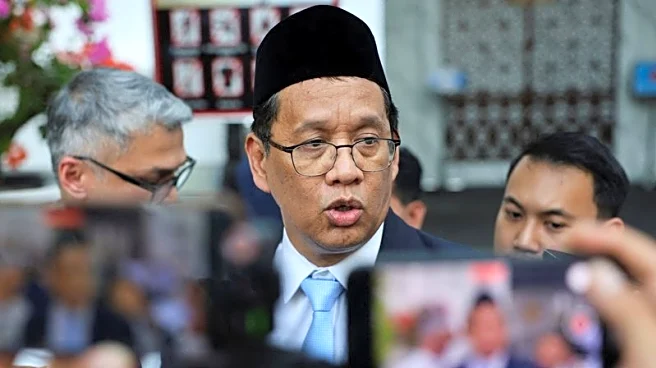JAKARTA (Reuters) -Indonesia's Finance Minister Purbaya Yudhi Sadewa on Friday said that the 200 trillion rupiah ($12.2 billion) given to state-controlled banks must be used for lending, and not to buy
bonds, as he sought to improve what he has called a "dry" banking system.
The liqudity measure is the minister's first major move since he took office on Monday to boost annual economic growth, which has hovered at around 5% since after the pandemic. He has said a 6% to 7% growth is achievable for Southeast Asia's largest economy, and described President Prabowo's 8% target "not impossible".
Purbaya is moving some of the cash the government keeps at the central bank to commercial banks in a bid to spur credit expansion.
"The goal (of this measure) is to ensure it flows to the real sectors," he told reporters in a press conference.
In a decree issued on Friday, Purbaya ordered that the funds in state banks be put into a "deposit on call" instrument for six months, but could be extended, at a rate equivalent to around 80.5% of the central bank's policy rate - which is currently 5%.
State lenders currently offer interest rates of between 2.5% to 5% for a 6-month term deposit in rupiah.
Despite the maturity mentioned in the decree, Purbaya said putting the money in a deposit on call instrument means the government could withdraw money any time it needs to fund operations.
Three of the biggest state-controlled lenders - Bank Mandiri, Bank Negara Indonesia, and Bank Rakyat Indonesia - would each get 55 trilion rupiah, while Bank Tabungan Negara would receive 25 trillion rupiah, and Bank Syariah Indonesia 10 trillion rupiah, according to the decree.
The banks are to sign a partnership agreement with the ministry's treasury department, which will cover rules about how the funds are used, the decree said. The banks must report how the funds are used to the department every month.
($1 = 16,385 rupiah)
(Reporting by Stefanno Sulaiman, Ananda Teresia; Editing by John Mair)









